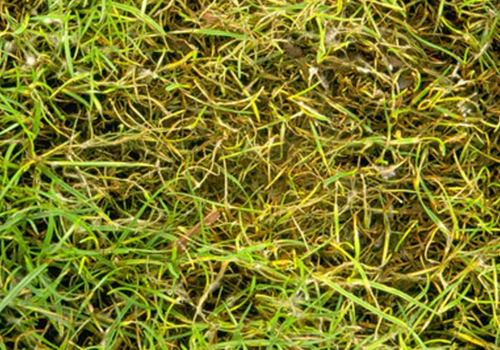 An application of paddock fertiliser or lawn fertiliser is essential to keep an area of grass looking and performing at its best. Fertiliser provides the grass with all the nutrients and food it needs to develop a lush and dense sward.
An application of paddock fertiliser or lawn fertiliser is essential to keep an area of grass looking and performing at its best. Fertiliser provides the grass with all the nutrients and food it needs to develop a lush and dense sward.
The key benefits of fertilising are:
· Creates sustained leaf growth
· Improves leaf and shoot density which will minimise weed infestation
· Improves root growth to maximise water and nutrient intake
· Encourages plant reproduction and spreading
· Gives the grass a richer, darker green appearance
· Improved resistance to diseases and drought
What Type of Fertiliser is Best for my Grass?
Most fertilisers for grass are typically split into two categories, Spring & Summer and Autumn & Winter. Both types contain a balance of nitrogen, phosphorous and potassium, which are the key nutrients the grass plant requires. However both are formulated slightly differently to give the grass the correct nutrients it needs for the time of year.
A Spring & Summer Lawn Fertiliser will typically contain a higher level of nitrogen (N), which is the main element the grass will need through the growing season. Nitrogen makes the grass plant grow quicker, produce more shoots and gives the leaf its darker colouring.
An Autumn & Winter Lawn Fertiliser will be lower in nitrogen. This is because as leaf growth slows down, so does the plant's need for nitrogen. A higher level of potassium is found in Autumn & Winter fertilisers, as this is the element that gives the grass resistance to fungal diseases which are common in the cold and wet conditions of the winter.
Some fertilisers are an All In One, Fertiliser, Weed and Moss Killer. The advantage of these is they give the benefits of a standard fertiliser, but also contain iron for the control of moss and a granular weed killer which will control most common lawn weeds.
When sowing a new lawn, it is often advisable to use a Pre-Seeding Fertiliser. This helps the seeds to grow into strong, healthy plants from day one, ensuring the soil contains all the nutrients it needs to grow. These usually contain higher phosphate levels which helps promote quick root growth providing a stronger root structure for the plant.
When should I use fertiliser?
Spring & Summer fertiliser should be used from late March up until the end of October with Autumn & Winter fertiliser being used outside of these times.
With Weed, Feed & Moss Killer, to achieve best results it should only be applied when the weeds are actively growing, usually between mid-April and late October. This will allow the weed killer to work to its full potential and give the grass time to spread and take the place of any weeds.
Pre-Seeding Fertilisers should be incorporated into the soil during the seed bed preparation when seeding a new lawn.
It is important with all fertilisers that they are applied when rainfall is imminent or when irrigation is available. If they are not watered in, the fertiliser can scorch and damage the leaf.
How Should I Apply Granular Fertiliser?
The key to achieving best results is to get as even coverage as possible. This is best achieved by using a fertiliser spreader. For smaller areas, either a drop spreader or a hand held rotary spreader are ideal, or for larger areas a pedestrian rotary spreader is best suited.
When using a rotary spreader it is best applied at a half rate in two directions to achieve a more even coverage
What should I do after I have fertilised?
After the fertiliser is applied the key thing is that it is watered in, either by rain of by irrigation as soon as possible. Once watered in, the grass should be not be mown for at least 3 days. For the first 2 cuts with the mower, the grass boxes should not be used and the clippings returned to the surface. This prevents any of the fertiliser being removed and wasted.
For further advice please contact [email protected]

